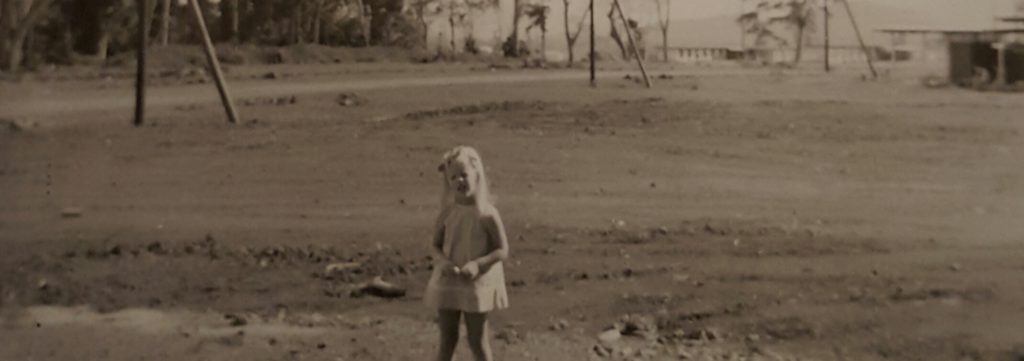Who I Am

For those of you who don’t know me my name is Ann Huber. I lived in Liberia for almost 14 years. It was very special and different to grow up there. Exotic one could say. I will always carry many beautiful memories from my childhood.
The first time I returned to Liberia after having left was 2003. It was very sad to see all my childhood memories gone. After two civil wars, the place was destroyed but the people were as caring as always. That trip was a lot of tears but also a lot of laughter. I knew that some day I had to do something to help.
Unfortunately, due to illness, it took some years before I could start something.
On a trip to Liberia 2014 together with my oldest son Roberth, when we where in Yekepa we ran in to an old schoolfriend of mine, Ted Brooks. He told us that he had an organization that helped women and children and invited us to come to Camp 4 and meet some of the women he was doing a project with. Ofcourse, fantastic. So of we went to Camp 4. What energy these women had and so many ideas. They really wanted to change Liberia for the better. So there and then I promised to help and support Ted Brooks organization. COPDA Inc., in any way possible.
I started of in a very small scale by organizing a charity lunch for former Lamco workers. I showed pictures from my recent trips and served Peppersoup – a typical Liberian dish. Everyone enjoyed both pictures and soup. This gave a small amount of money that I could send to Liberia. Then I showed pictures at a Reunion party, also for former Lamco workers and again it gave a small amount to send to Liberia.
However, we need more then small amounts to send. So I decided to start an organization and after some paperwork COPDA Sweden was a reality and a sister organization to COPDA Inc in Liberia. I did have some experience since I had been on the board of another organization working in Liberia, for six years.
Now I’m hoping for a lot of new members and many donations. Please see membership information on how to become a member. We need you!
With Kind Regards,
Ann Huber
Liberia
Liberia, officially the Republic of Liberia, is a country on the West African coast. It is bordered by Sierra Leone to its northwest, Guinea to its north, Côte d’Ivoire to its east, and the Atlantic Ocean to its south-southwest. It has a population of around 5 million and covers an area of 111,369 square kilometers (43,000 sq. mi.). English is the official language, but over 20 indigenous languages are spoken, representing the numerous ethnic groups who make up more than 95% of the population. The country’s capital and largest city is Monrovia.
Liberia began as a settlement of the American Colonization Society (ACS), who believed black people would face better chances for freedom and prosperity in Africa than in the United States. The country declared its independence on July 26, 1847. The U.S. did not recognize Liberia’s independence until February 5, 1862, during the American Civil War. Between January 7, 1822, and the outbreak of the American Civil War in 1861, more than 15,000 freed and free-born people of color who faced social and legal oppression in the United States, as well as 3,198 Afro-Caribbeans, relocated to the settlement. The settlers carried their culture and tradition with them. The Liberian constitution and flag were modeled after those of the U.S. On January 3, 1848, Joseph Jenkins Roberts, a wealthy, free-born African American from Virginia who settled in Liberia, was elected Liberia’s first president after the people proclaimed independence.
Liberia was the first African republic to proclaim its independence, and is Africa’s first and oldest modern republic. It retained its independence during the Scramble for Africa. During World War II, Liberia supported the United States war effort against Germany and in turn, the U.S. invested in considerable infrastructure in Liberia to help its war effort, which also aided the country in modernizing and improving its major air transportation facilities. In addition, President William Tubman encouraged economic changes. Internationally, Liberia was a founding member of the League of Nations, United Nations, and the Organisation of African Unity.
Click to Read More.
Lamco
The Liberian-American-Swedish Mining Company (LAMCO) is a defunct Liberian corporation that mined for iron ore in the Nimba range in Liberia during the second half of the twentieth century. Founded in 1955 by American and Swedish investors, the company established the first large-scale mining operation in Liberia following the discovery in the 1950s of the Nimba ore body by geologist Sandy Clarke.
The company built a standard gauge railroad approximately 360 km long, linking the mine in the north of the country, to the Port of Buchanan. The Nimba project was managed by LAMCO, Bethlehem Steel, and the Liberian government. Liberia introduced a nationalization policy intended to gradually phase out the non-Liberian staff. By 1989 ore that was profitable for extraction by market rates in the Nimba range had been exploited, but Guinea had large reserves that had not yet been mined.
Click to Read More.


